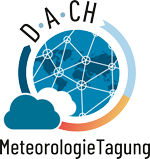Evapotranspiration measurements in the Brazilian Caatinga dry forest
- 1Federal University of Ceará, Center for Agricultural Sciences, Agricultural Engineering, Fortaleza, Brazil (jcaraujo@ufc.br)
- 2Federal University of Recôncavo da Bahia, Cruz das Almas, Bahia, Brazil
- 3Leipzig Institut für Meteorologie, University of Leipzig, Germany
- 4ESALQ - University of São Paulo, Piracicaba, São Paulo, Brazil
The Brazilian semiarid region (one million km²) is densely populated (25 million inhabitants), but its natural water availability is low. Despite the fact that evaporative processes are key to the regional water deficit, the actual evapotranspiration of natural environment has rarely been measured, especially in the native Caatinga dry forest. We hereby propose a simple method that demands the monitoring of five meteorological variables: relative humidity, global radiation, canopy and air temperature, as well as wind speed. These values are used to assess leaf energy balance, yielding net radiation (Rn) and actual evapotranspiration (LE). To estimate the actual Caatinga evapotranspiration under natural conditions and in different seasons, the proposed method was applied in situ during nine months. The application site was the Aiuaba Experimental Basin, situated in an environmental protection area in the North-eastern Brazil. The method provided consistent results when compared with independent measurements, such as atmospheric demand, leaf area, and soil water content variation. Results indicate that the daily average net radiation is 12 MJ m-². During the dry season, the actual evapotranspiration is very low, with negligible LE/Rn ratio. Contrastingly, in the rainy season, it raises to 6 mm per day, with average LE/Rn ratio equalling 0.89. The results show that the actual evapotranspiration in the Caatinga long-lasting dry season (up to nine months per year) is controlled by the water availability in the soil.
How to cite: de Araújo, J. C., Vellame, L. M., Raabe, A., and de Jong van Lier, Q.: Evapotranspiration measurements in the Brazilian Caatinga dry forest, DACH2022, Leipzig, Deutschland, 21–25 Mar 2022, DACH2022-41, https://doi.org/10.5194/dach2022-41, 2022.

